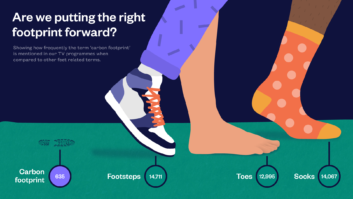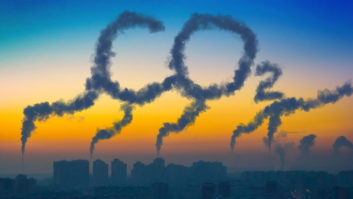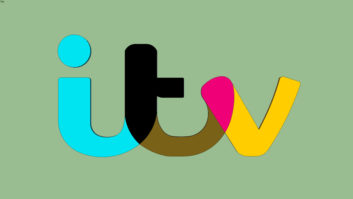
Bafta’s ‘albert’ sustainability initiative for the TV and Film industry, has released its second Subtitles to Save the World report which investigates how often climate change is mentioned on TV screens in the UK.
For the second iteration of the research, albert joined forces with Deloitte who used subtitling data from the BBC, Channel 4, Channel 5, ITV, and Sky from September 2018 to August 2019 to assess how often words associated with five key sustainability terms – food, travel, resources, climate change and energy – were mentioned.
The research showed that while mentions around the key sustainability terms increased fourfold in comparison to the first report (2018), they are still outnumbered by ‘climate damaging’ references to air travel and eating beef.
Aaron Matthew, albert’s head of industry sustainability, explained: “It’s encouraging to see climate rising up the agenda but we now need to see commissioners and content producers taking an active role in how we talk about climate on screen. It cannot be siloed away into the natural history programming slot; we need to see the climate brought into every conversation, from food programmes to travel shows. If the science tells us we need to reduce our meat intake then we can’t keep promoting meaty recipes on our cookery shows without, at the very least, recognising the environmental impact”.
This year, subtitle data from Channel 5 was included alongside BBC, ITV, Channel 4 and Sky “to help give a more complete picture of how terrestrial channels are talking about the climate”. Mentions of climate change increased from around 3,000 to more than 13,000 mentions from the previous report but were still dwarfed by other terms such as ‘wedding’ (84,870) or ‘cake’ (72,737). Perhaps more relevantly, they remain outnumbered by mentions of high carbon activities such as beef consumption (21,307) or air travel (43,945).
Since 2014, albert has been awarding certificates to programmes that have made efforts to reduce the carbon footprint of their production. From 2021, the threshold for receiving either 1, 2 or 3 star certification will be increased with the production required to show how their production’s editorial ambition is also compatible with a sustainable climate. The change comes as new surveys conducted by broadcasters shows that audiences want to see increased environmental programming.
“True stories help us all understand ourselves and the world around us,” said Peter Bazalgette, executive chairman of ITV. “The potential for new narratives to help British audiences navigate the climate crisis cannot be underestimated. If we get it right, following the dictates of responsible journalism, the implications will be truly global.”
Dorothy Byrne, editor at large at Channel 4, added: “We know climate change is a real concern for our audiences, particularly younger viewers, which is why we have committed to a range of measures to reduce our environmental impact including a target of being carbon net-zero by 2030. There is still much to do and we are committed to improving the way we reflect and talk about climate on screen.”
The second Subtitles to Save the World report can be downloaded here, and the first iteration of the report from 2018 can be found here.







